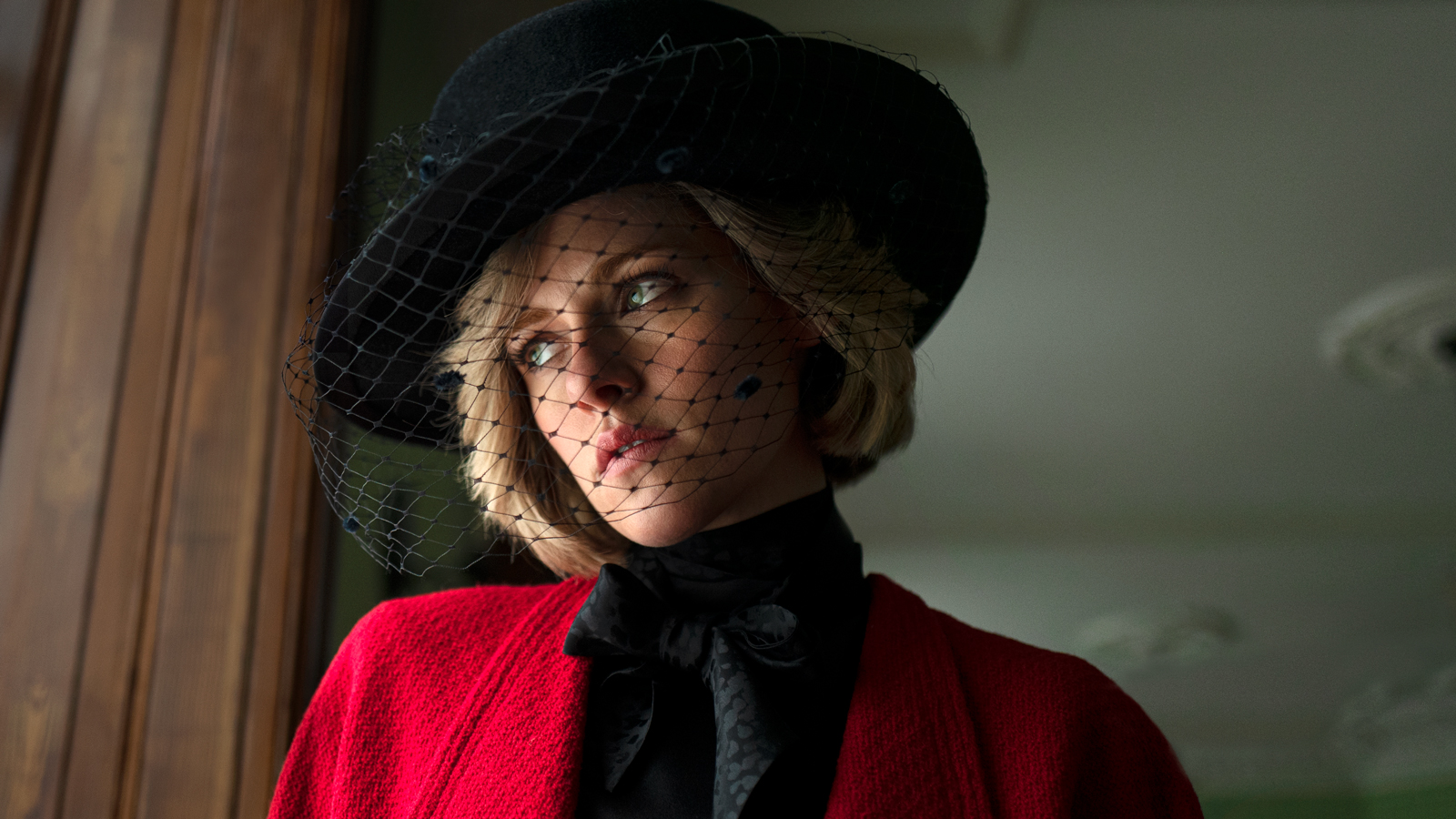What to Watch Verdict
Stewart and Larraín compellingly capture the essence of Diana's life through a lens of terror and existential dread, cementing 'Spencer' as one of the best films of the year
Pros
- +
Kristen Stewart gives a hypnotic lead performance
- +
Jonny Greenwood's score is one of his finest
- +
Pablo Larraín's lean into horror movie atmosphere provides a welcome twist to biopic formula
Cons
- -
Steven Knight's screenplay is probably a little too proud of its explicit Anne Boleyn parallels
As the production logos finish passing and the scene fades in on Pablo Larraín’s Spencer, a title card informs the audience that this is a fable based on a true tragedy, a signal that this biopic should not be taken as literal events that happened to the real Princess Diana of Wales, but are instead fiction that is inspired by her life and experiences. It’s an important distinction to make, not only because Spencer purportedly condenses multiple occurrences from Diana’s life down to a single 1991 Christmas holiday, but it frames its narrative in terms more reminiscent of a horror movie than a conventional drama.
It’s a stylistic choice that explicitly positions Diana as a survivor of her own life, not to be constrained by a factual recounting and instead accepted as an emotional truth. And in the process, Larraín and Kristen Stewart, starring as the titular princess, have turned in some of the best work of their careers.
Much like Larraín's previous examination of modern feminine royalty, Jackie, Spencer places its focus squarely on its lead performance, not necessarily to the exclusion of all else but as an unambiguous lens through which one experiences Diana’s hardships. The princess is quickly established to have a difficult relationship with house staff and her family, but it’s just as readily evident that her options are extremely constricted for how she is expected and mandated to act.
The royal family is portrayed as icy figures of silent judgment, headed by the formalistic specter of Queen Elizabeth II (Stella Gonet). Diana’s own husband Charles (Jack Farthing) is an emotionally distant adulterer, audacious enough to gift Diana the same set of pearls he gave his mistress, and the staff at large views any information gleaned about Diana’s mental health as currency to be sold to the salivating paparazzi. Her only allies are a few select trusted staff (Sean Harris and Sally Hawkins) and her two children (Jack Nielen and Freddie Spry); but as much as those interactions allow her to be vulnerable and even occasionally jovial, their loyalties are also a perpetual question.
This manifests in Stewart’s performance as a figure who is perpetually polite and a bit nervous, but is quite nakedly masking her agitation at being confined to a role that asks her to look pretty for no one and to mute any semblance of personality that would betray the royal family as anything less than divine. Subtle tics of shyness and shame dot her early interactions, particularly with the military man charged with watching over her activities (Timothy Spall), but they give way to apologetically manic outbursts at support staff and private moments of violent rebellion and self-harm. Diana’s bulimia in particular is shown as a rejection of the enforced decadence of her lifestyle, a single mote of control in a rigidly enforced schedule of arbitrary outfit changes and monotonous entrapment within palace grounds.
That is what lends Spencer its horror movie atmosphere, whether it’s Claire Mathon’s claustrophobic cinematography contrasting the palatial interiors with the freedom of the preferred open spaces of Diana’s youth or Jonny Greenwood’s superb score creating an off-putting mood to shots as simple as the royal family’s arrival. But it goes even deeper, as Diana becomes intrigued by the parallels of her life to that of Anne Boleyn — a comparison that screenwriter Steven Knight is probably a little too proud of for how hard it’s hammered home — and in turn becomes haunted by an actual manifestation of Henry VIII’s famously murdered wife (Amy Manson). Combined with visitations to fog-enshrouded fields and Diana’s dilapidated childhood home, there is a persistent feeling that the past and the present have collapsed into a horrifying malaise that robs the princess of any hope for a future.
At its core, that’s the crux of Larraín’s insight into the former Ms. Spencer. The appeal of royalty, with all its glamor and tabloid value, is largely a mask for an aristocratic culture that holds to the artifice of self-importance by quashing any sense of independence from those who are brought into its fold. The miracle of Diana’s life is that she was able to hold on to her sense of individual personhood, in spite of her confinement to a system that demanded silent obedience “for the good of the country.” Stewart and Larraín so compellingly capture this essence through a lens of terror and existential dread, cementing Spencer as one of the best films of the year, regardless of whether it holds on to the literal truth of that holiday 30 years past.
Spencer opens exclusively in theaters on Nov. 5.
Leigh Monson has been a professional film critic and writer for six years, with bylines at Birth.Movies.Death., SlashFilm and Polygon. Attorney by day, cinephile by night and delicious snack by mid-afternoon, Leigh loves queer cinema and deconstructing genre tropes. If you like insights into recent films and love stupid puns, you can follow them on Twitter.












